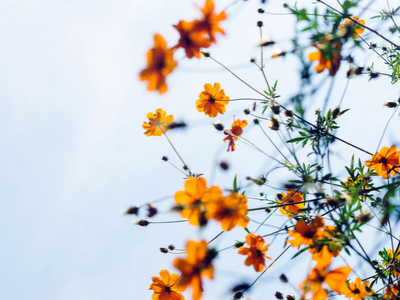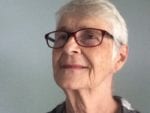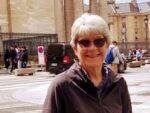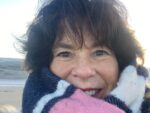Do you get pulled off-center by stress and negativity? Or get triggered and then overreact? Join me for…
Self-in-Presence…
and Parts
An on-demand course with Ann Weiser Cornell for living from your calm, steady center no matter what.
“Cultivating Self-in-Presence is perhaps the most important thing you can do to keep you safe when dealing with inner and outer conflict. It will keep you strong and it will keep you on track.”
-Barbara McGavin & Ann Weiser Cornell
Do you find yourself reacting – and over-reacting – to the daily stresses of life?
There’s so much that is stressful these days! Social media, extreme weather, job worries… it can easily start feeling like “just too much.”
Other people are stressed out as well… so you can find yourself embroiled in conflicts that you didn’t start but don’t know how to get out of.
It’s easy to feel at the mercy of the tough things in life.
Losses and challenges can land on you one after another until it feels like you’ll never get out from under. Ashleigh Brilliant wrote: “I can handle one day at a time, but sometimes several days pile up on me at once.” Once you start to lose your perspective, even small stresses can feel like big disasters.
The trouble comes when you lose your capacity to roll with the punches and come back to center.
Hard things happen to everyone and it’s natural to need some time to recover. But when you’ve lost your resilience, even taking time doesn’t seem to help. You rest – but you don’t feel rested. Your stress levels remain high… and that takes a big toll, physically and emotionally. It’s like your reserves are being drained and they don’t fill up again.


Yes, there is a way to recover your inner resources and face life with “a full tank.”
It’s called cultivating Self-in-Presence.
Self-in-Presence is quite simply the ability to be bigger than what life throws at you.
Maybe you remember a time when you were in such a good mood that the usual stresses couldn’t trigger you. Or you can think of some people you know who can remain calm when others would get defensive. That’s Self-in-Presence.
When you cultivate Self-in-Presence, you can handle even the toughest things in life from a calm, strong center.
The concept of Self-in-Presence comes from the Untangling® method that Barbara McGavin and I created to meet the challenges of suicidal depression and alcohol addiction. Yes, even for challenges that tough, the first step is to cultivate Self-in-Presence.
Do you find yourself reacting – and over-Rather than being in denial, Self-in-Presence is a state where you see with clear eyes. – to the daily stresses of life?
You can make good choices. You can gather the best information. You can discern between situations and behaviors that don’t serve you, and those that nourish you and others. When you’re reactive and overwhelmed, it’s hard to do these things. But as Self-in-Presence, you have the resources you need to respond to life as your whole self.
Rather than being taken over by feelings like anxiety or anger, when you’re Self-in-Presence you create a relationship with your feelings. There’s no need to fight with how you feel.
You can make wise choices, taking the whole picture into account. You’re much less likely to react to other people in a way that triggers them too. Life is calmer, more productive, more relaxing.
Cultivating Self-in-Presence is the single most important thing you can do to change your life for the better.
And I want to help you get better at doing it.
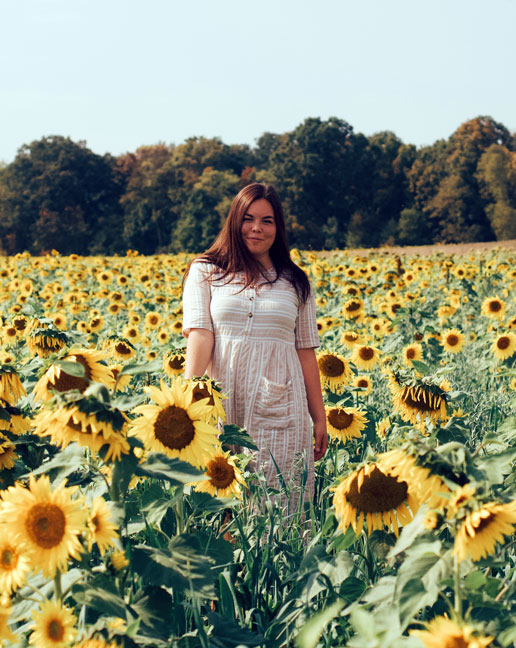
― Ann Weiser Cornell
Join me in this course where I’ll show you how to:
- Create a daily practice that will nourish and grow your ability to be calm and steady in the midst of stress.
- Understand the difference between using good feelings as a way to skip over negatives, and being genuinely positive despite the negatives.
- More easily move from being taken over by your feelings to having a compassionate relationship with your feelings.
- Understand the difference between shaming yourself for impulsive behaviors and calmly choosing to behave in a healthier way.
- Bring generous curiosity to yourself and others… and experience the huge difference this makes!
This course could be right for you if:
- You get knocked over by emotional states, triggered by events or other people.
- Daily life feels difficult because of stressful emotions.
- You know that having more calm and balance is possible, you just don’t always manage to do it.
What You’ll Get:
In this course, you’ll experience a series of resource-building practices that you can make part of your life and go on using even when the course is over.
And you’ll get lots of support from a community of other Focusers to maintain your Self-in-Presence practice!
The result: You know in your deepest core you are OK… and you can live from that place.
Seven weekly modules – Each introduces you to one or two new skills you can use to strengthen your experience of Self-in-Presence so you can be calm and steady no matter what

Gathering Your Resources
You can cultivate your ability to be Self-in-Presence by doing resourcing activities like walking in nature, doing yoga or dancing… and you can also cultivate your ability to be Self-in-Presence by the way you create relationship with your more challenging feelings.

Recognizing Your Triggers
Being able to recognize when you are triggered is actually a key skill you can develop. You can also learn to relate as Self-in-Presence to your stressful thoughts.

Relating as Your Bigger Self
You can draw on images and metaphors to help you find Self-in-Presence when you need it the most. You can start experiencing Self-in-Presence as a way of living, not just something you do at special times.

Having a Self-in-Presence Practice
The simple practices you do each day can make all the difference in whether you get taken over by your stressed, emotional parts, or whether you are calm and able to act with flow.

Stepping Between the Parts
When you have Parts that react to each other in repetitive patterns (and have done so for a long time), what they need from you is a kind of Presence where you provide them space but don’t get caught in the battle.

Reactions to Other People
The biggest challenge to being Self-in-Presence is other people! The closer they are to us, the more other people tend to bring up our Parts. Let’s learn some ways to cultivate Self-in-Presence even when around other people.

Self-in-Presence is the Environment Parts Need
Cultivating Self-in-Presence strengthens your ability to face the world with calm and wisdom AND be with parts that need your attention. Self-in-Presence is also the ideal environment to receive the wisdom of your felt senses. You can practice living from Self-in-Presence more and more of the time.
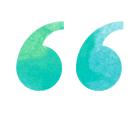
“Before the course, it was a challenge to be present in the everyday moments of life as a wife, mother, friend, and daughter. I suffered from little triggers that set me off, especially with family. That all left me feeling inadequate. I longed to be present to my life without the painful triggered explosions or feelings of emptiness in the more ‘mundane’ moments.
The Self-in-Presence & Parts course has been life-changing. The ability to step back into that presence and see the ‘somethings in me’ has completely shifted my perspective of life. It’s the greatest gift I’ve given myself. The gratitude I feel to Ann and Barbara for Inner Relationship Focusing is beyond words.”
About Your Teacher
Ann created Inner Relationship Focusing with her long-time colleague, Barbara McGavin, to help alleviate the thinking and feeling cycles that kept her stuck in hard places. It changed her life, and it became her mission to help others create quiet miracles in their lives too.
Since 1985, Ann’s been teaching this practical, revolutionary process to people all over the world. With her Self-in-Presence on-demand course, you get the benefit of Ann’s expertise and the chance to practice the simple, yet revolutionary process of Focusing with her gentle, compassionate guidance.
Ann is the author of 21 Days to Better Boundaries, Focusing in Clinical Practice: The Essence of Change, The Power of Focusing, The Radical Acceptance of Everything, and Untangling: How You Can Transform What’s Impossibly Stuck. Today she is internationally recognized as one of the leading innovators and theoreticians of Focusing.
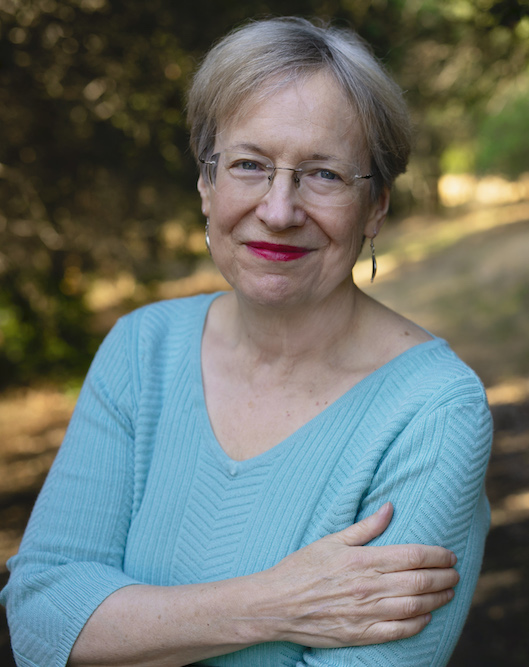
“When you are merged with a Part, you see the world through its eyes. You can’t see the larger picture or another person’s point of view. You can’t get a sense of the whole situation.” -Barbara McGavin & Ann Weiser Cornell
Are You Ready to Be Calm and Steady No Matter What?
I Can Help Get You There…
Identify When & How You Get Triggered
Develop Your Presence & Curiosity Skills
Experience More Calm Resilience
Enroll for Your Course Here
Self-in-Presence…and Parts On Demand Course
7-Module On-Demand Course
Unlimited, lifetime access
Taught by Ann Weiser Cornell
Additional details
This is a recorded on-demand course that includes two of our popular courses: Self-in-Presence and Presence & Partiality. There were some microphone issues during the course and some of the sound may be scratchy.
Self-in-Presence and Partiality are concepts from the Untangling® method created by Ann Weiser Cornell and Barbara McGavin. This isn’t a course in the full Untangling® method. Specifically, we will not be working with Parts after they’re identified. But just finding your Parts and unmerging from them is already a powerful thing to do!
How This Course Works

Be Supported In Your Process!
You won’t be going it alone! You’ll have access to a forum to chat with other students, plus access to Ann for parts where you might feel stuck.

Available at Your Convenience!
You can access new content (delivered weekly) whenever it works for you. You get lifetime access, so you can revisit the material anytime.

Interactive Materials
This course includes a beautiful PDF workbook to help you integrate your learning. There will also be checkpoints during the course to check-in on your progress.
“When you are merged with a Part, you see the world through its eyes. You can’t see the larger picture or another person’s point of view. You can’t get a sense of the whole situation.”
-Barbara McGavin & Ann Weiser Cornell

